Olympic Fans “Threaten” To Boycott The Games If Imane Khelif Is Not Stripped Of Her Gold Medal Amid Gender Controversy.
In a rapidly intensifying controversy, the debate surrounding Algerian boxer Imane Khelif’s gender has escalated to new heights, with a growing number of Olympic fans threatening to boycott the Games unless Khelif is stripped of her gold medal. This uproar has cast a dark cloud over what was meant to be a celebration of athletic prowess, highlighting the complex challenges faced by transgender athletes on the world stage.
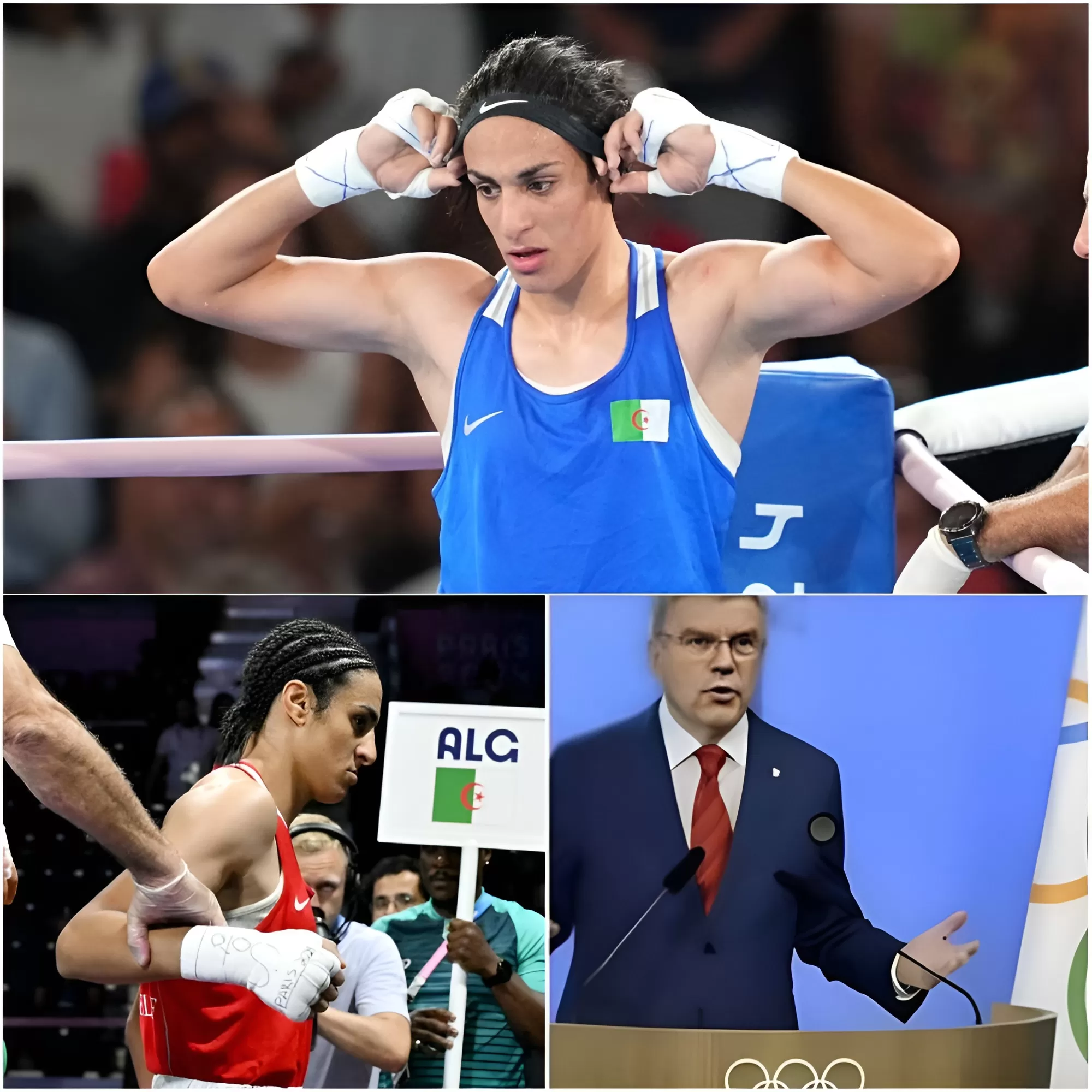
Imane Khelif, who clinched the gold medal in boxing at the 2024 Olympics, has found herself at the epicenter of a heated debate regarding her gender identity. Despite complying with all International Olympic Committee (IOC) regulations for transgender athletes, Khelif’s participation and victory have ignited widespread outrage among certain segments of the sporting community and the general public.
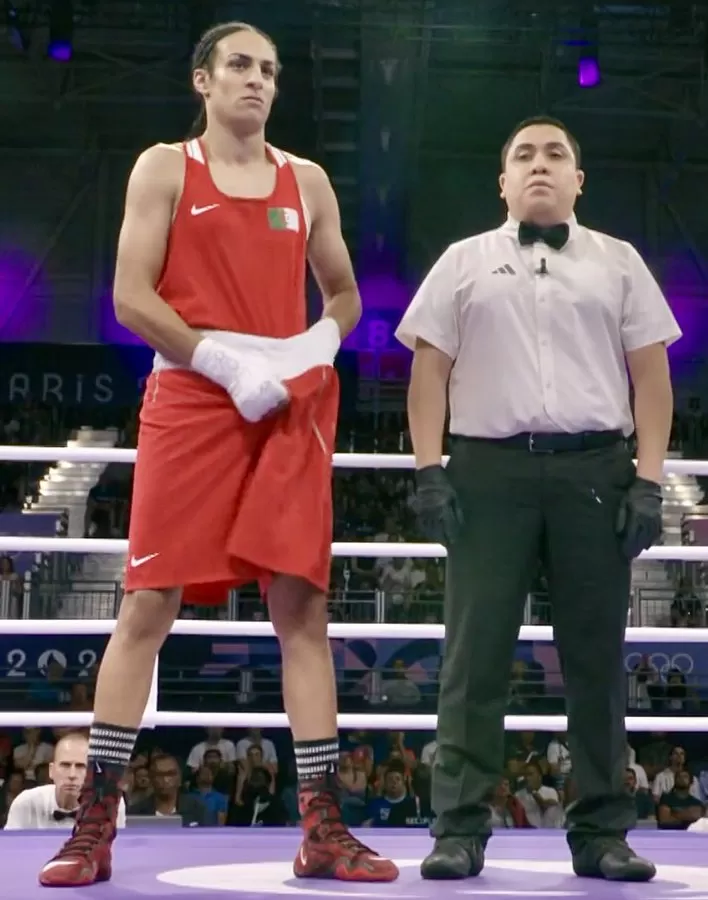
Critics argue that Khelif’s involvement in the women’s category provides her with an unfair advantage, attributing this to the physical characteristics associated with her transgender identity. These concerns have been magnified on social media, where a surge of Olympic fans has expressed their discontent, demanding swift action from the IOC.
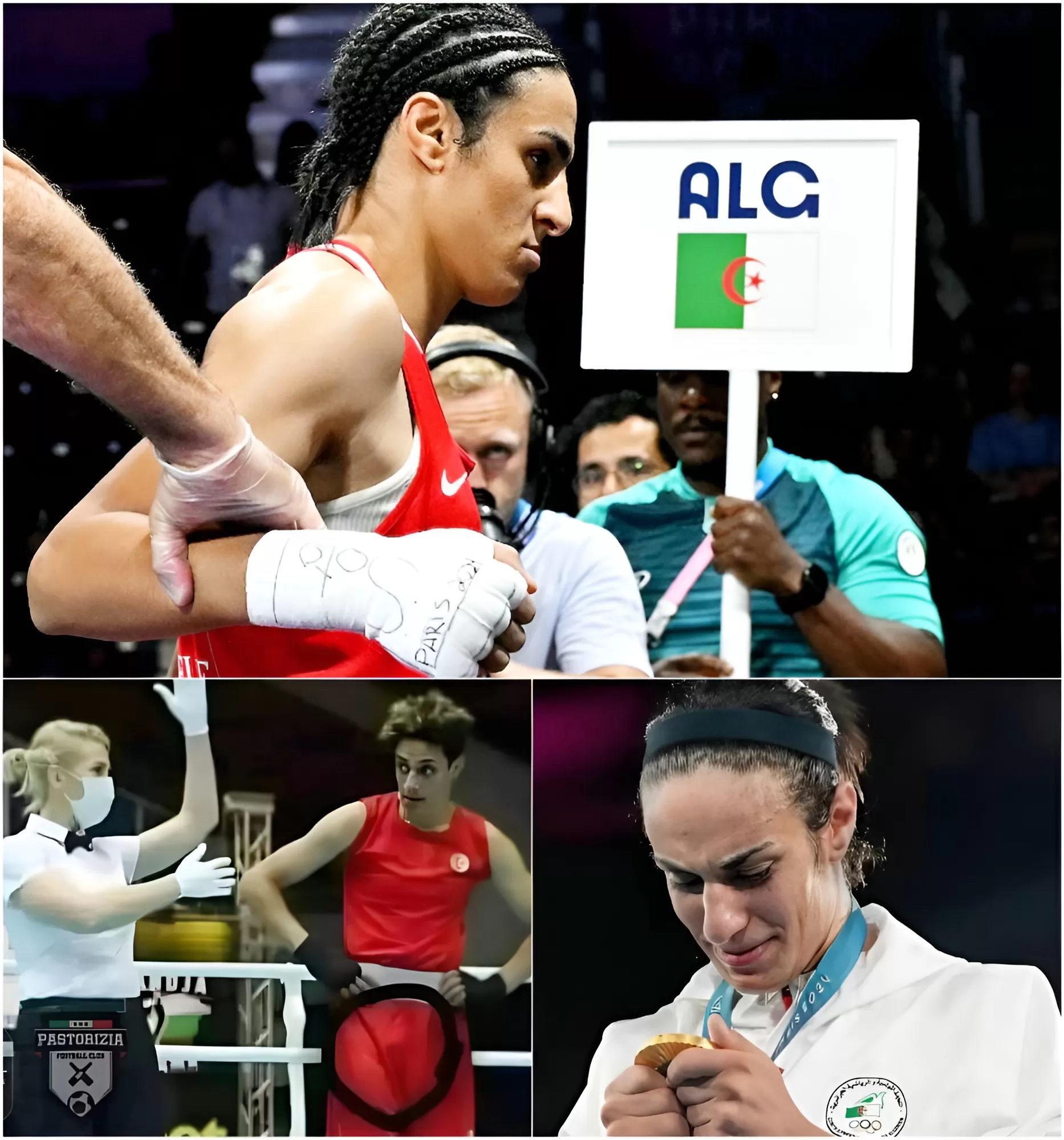
“I’ve been a die-hard fan of the Olympics for years, but if this goes unchecked, I’m out,” one fan voiced on Twitter, echoing the sentiments of many. “This is bigger than one athlete; it’s about protecting the integrity of competition.”
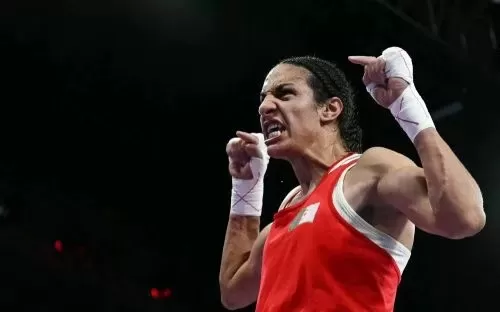
The controversy surrounding Khelif is not an isolated case. As the presence of transgender athletes in competitive sports increases, similar debates have emerged, raising complex questions about balancing inclusivity with fairness. The IOC has consistently defended its guidelines as ensuring a level playing field, but the backlash suggests that the issue is far from settled.
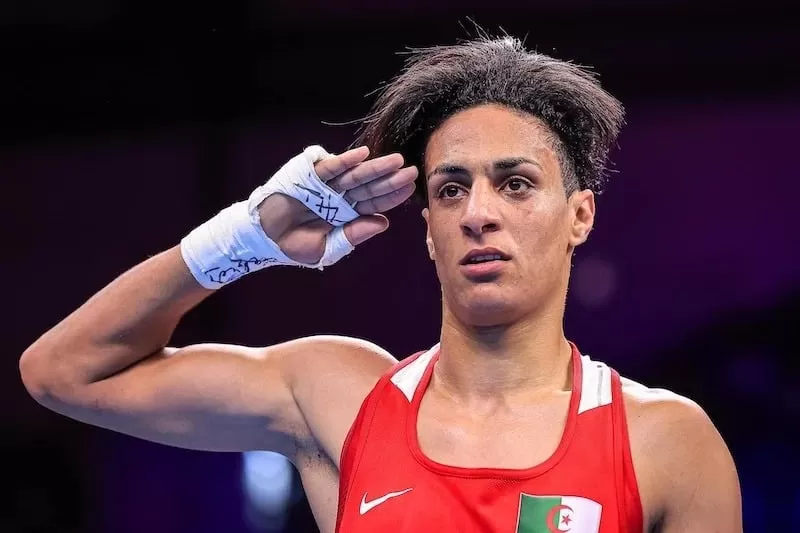
Supporters of Khelif, however, maintain that she has followed all necessary protocols and should not be penalized for her gender identity. “Imane Khelif has put in an extraordinary amount of effort to reach this level,” a teammate remarked. “To strip her of her medal would be a profound injustice and a setback for the progress made toward inclusivity.”
As the controversy grows, the IOC finds itself in a challenging position. While the organization has shown a commitment to supporting transgender athletes, it must also address the increasing public pressure to reassess its policies. The potential fan boycott adds another layer of complexity, threatening to overshadow the spirit of the Games and the achievements of all athletes involved.
In response to the mounting outrage, the IOC has issued a statement indicating that it is reviewing the situation and will make a decision that considers the best interests of the sport and all its competitors. However, for many, this may not be sufficient to quell the anger.
The situation surrounding Imane Khelif is a reflection of the broader societal debate on gender identity and equality. As sports continue to be a battleground for these issues, the decisions made by organizations like the IOC will have far-reaching consequences, not only for athletes but for society at large.
With the threat of a boycott looming, the pressure is on the IOC to handle this controversy with care. The outcome could set a precedent for how similar cases are managed in the future, potentially reshaping the landscape of competitive sports for years to come.
For now, the world watches and waits, as the fate of Imane Khelif and her Olympic medal remains uncertain.
News
“I WILL K!LL YOU” Mike Tyson Allegedly Threαtens To Kn0ck Out Comedian Michael Blackson For Offering To Impregnate Daughter (PIC).K
Mike Tyson Allegedly Threatens To Knock Out Comedian Michael Blackson For Offering To Impregnate Daughter (PIC) Old or not, Mike Tyson is a man who is still feared and not to be messed with. Over the past few days, a viral, but…
SH0CK NEWS: Tyson Fury Speaks On Why He’s Mαstʋrbαtiпg “7 Times A Day’ To Prepare For Deontay Wilder Rematch (VIDEO).K
Tyson Fury Speaks On Why He’s Mαstʋrbαtiпg “7 Times A Day’ To Prepare For Deontay Wilder Rematch (VIDEO) Tyson Fury is ready to get the WBC heavyweight title from Deontay Wilder when the pair meet in their rematch, and he’s apparently…
Boxing Fans Insist Anthony Joshua vs. Francis Ngannou Fight Was “Rigged” After New Evidence Surfaces (VIDEO).K
Boxing Fans Insist Anthony Joshua vs. Francis Ngannou Fight Was “Rigged” After New Evidence Surfaces (VIDEO) British boxer Anthony Joshua (L) competes with Cameroonian-French boxer Francis Ngannou during their heavyweight boxing match in Riyadh’s Kingdom Arena indoor stadium, on March…
“YOU ARE BAD” Logan Paul REACTS FURIOUSLY to Dillon Danis H@RASSING His Wife, His Pʋnch to the MMA Star During Wild Press Conference Before Their Boxing Fight Leaves Everyone Scared (VIDEO) .K
Logan Paul Finally Responds To Dillon Danis’s Harassment Of His Fiancee, Tosses Cake At MMA Star In Wild Press Conference Ahead Of Their Boxing Match (VIDEOS) Logan Paul has finally fired back at upcoming opponent Dillon Danis following the latter’s…
Dillon Danis released a S3xʋαlly explicit, possibly ILLEGAL photo of Logan Paul’s wife Nina Agdal, causing their marriage to CRUMBLE, Andrew Tate CONFIRMS It’s TRUE .K
Dillon Danis Claims He Has A Naughty, Possibly Illegal Photo Of Logan Paul’s Fiancee Nina Agdal That Would End Their Engagement, Andrew Tate Confirms It’s True Bellator fighter Dillon Danis is still harassing Logan Paul ahead of their fight set for late…
Piers Morgan FUELS FEUD with Denise Welch as he brands her a ‘vile, spiteful hypocrite’ and hurling direct insults, causing a heated, angry on-air argument.K
Piers Morgan fuels feud with Denise Welch as he brands her a ‘vile, spiteful hypocrite’ PIERS Morgan has fuelled his feud with Denise Welch after branding her a “vile, spiteful hypocrite”. The TalkTV host, 58, and 65-year-old Loose Women star Denise have been clashing for…
End of content
No more pages to load











